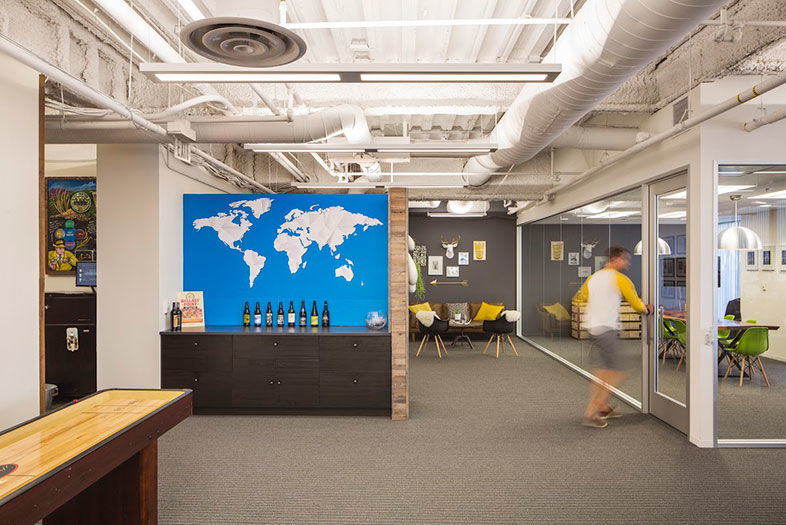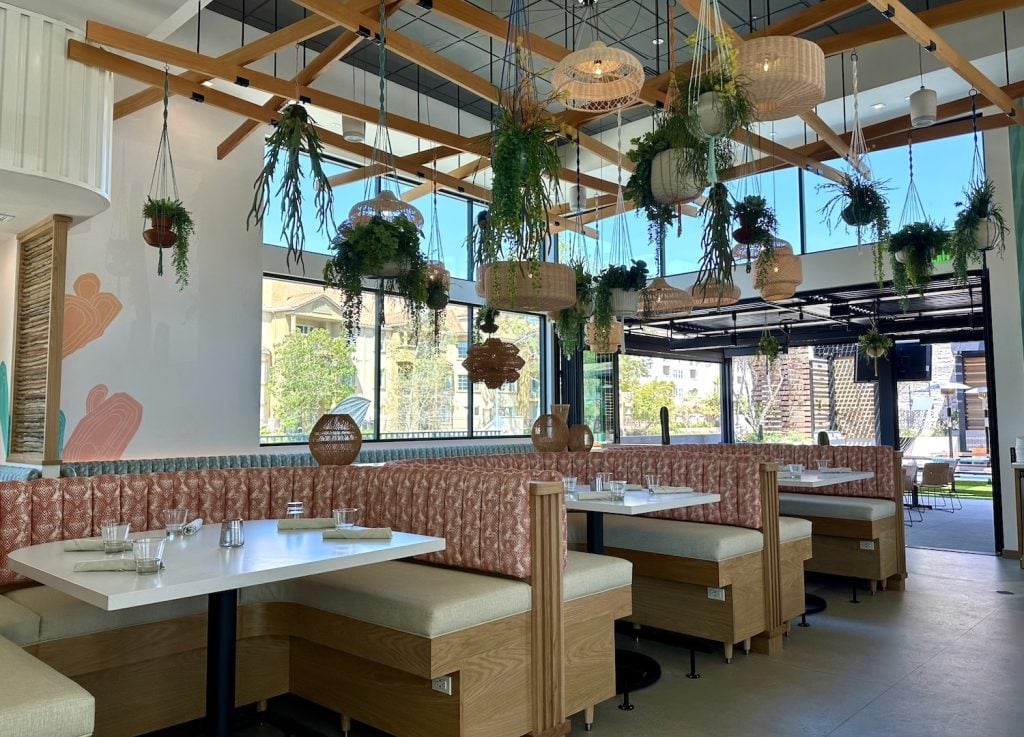In celebration of San Diego Startup Week, we’re taking a look at how the real estate market affects startups and incubators in our city.
We recently got word that a tech incubator we’re featuring in the July issue of Hatch has an uncertain future.
The small but influential Ansir Innovation Center has been in the Convoy District since 2010, helping numerous startups get off the ground, like CleverPet, The Green Neuroscience Laboratory, and Emotient, which was acquired by Apple earlier this year.
Now the center could be in jeopardy, because the building where it leases space is up for sale. Founder Ping Wang says there have already been several bids on the building and he’s afraid of the possibility of closing or relocating, because a new landlord is expected to take over.
“Startups and incubators aren’t immune to gentrification woes. They move into an area where rent is cheap, they help make the area more attractive and appealing, but eventually they get priced out and have to move,” Wang says. “We find that we have to reboot, every time. It’s a repeat story that has happened to several incubators.”
Wang cited Privateer Lounge Innovation Center in Chula Vista and Co-Merge, which moved from A Street to Hillcrest late last year, as other recent examples.
Privateer was the first and only tech incubator and co-working space in the South Bay, and it closed this April—partially due to lease issues, but also because of the success it fostered.
Enrique Monteagudo, a patent attorney and National City native, founded Privateer in 2015 and funded it with his own IRA. “Although we were on a trajectory of positive growth,” he says, “in February I decided to stop personally funding the venture, and arranged the finances so that we were breaking even.”
Monteagudo says his incubator’s largest startup, Luxtheon, received a round of funding in March—which required a move into the investors’ 20,000-square-foot facility in Miramar. “Unfortunately, the timing was good for them but bad for us,” he laments, “and they left two days before Privateer’s rent was due. I decided to immediately close it down, rather than continue to personally fund what was essentially an economic development activity.”
A call for landlords and tenants to work together
Jay Alexander, managing director of JLL San Diego, says many incubators and startups struggle with finding and keeping an office space, because they often don’t have the credit or want the long-term leases that landlords desire.

“Startups Aren’t Immune to Gentrification Woes”
Local app developer Taphunter got its start at EvoNexus and upgraded to its own space in Symphony Towers last year. | Photo courtesy of Focuscom Inc.
He says that rent for San Diego office space—especially in the stylish buildings with open floor plans that startup incubators prefer—has risen drastically. “The rent for these spaces in the past three years has gone up around 10 to 20 percent. Overall, the rent for office space in San Diego has risen 50 percent in the same time period.”
Wang, of Ansir, says these companies need to find a way to be a stakeholder in their building, or find “enlightened landlords.”
“Startups and incubators increase property values. We would work best in collaborating with a landlord, versus having a traditional cookie-cutter landlord-and-tenant relationship,” he says. “Gentrification itself is not bad as it helps spur economic growth, but should be done in an inclusive and win-win manner—not just a one-sided win for property owners.”
Alexander agrees that finding a unique landlord or building owner would work in a startup’s favor. He also suggested looking into a larger outside firm that operates co-working spaces in numerous cities, like Real Office Centers, which has spaces in UTC and downtown.
Wang says the city should address the issue of affordable office spaces for startups and incubators, since these companies are helping build communities. He cites Temecula turning their old city hall into a co-working space as a successful example of a government agency fostering innovation.
Civic San Diego recently put out a request to developers for ideas on how to repurpose the old Central Library on E Street, and specifically wants a plan that will “foster innovation and entrepreneurship,” so a new incubator or startup hub could be on the way, but not any time soon.
Meanwhile, Monteagudo says he wants to reopen Privateer in March of next year.

“Startups Aren’t Immune to Gentrification Woes”
Rent for San Diego office space has risen drastically in the past few years.















